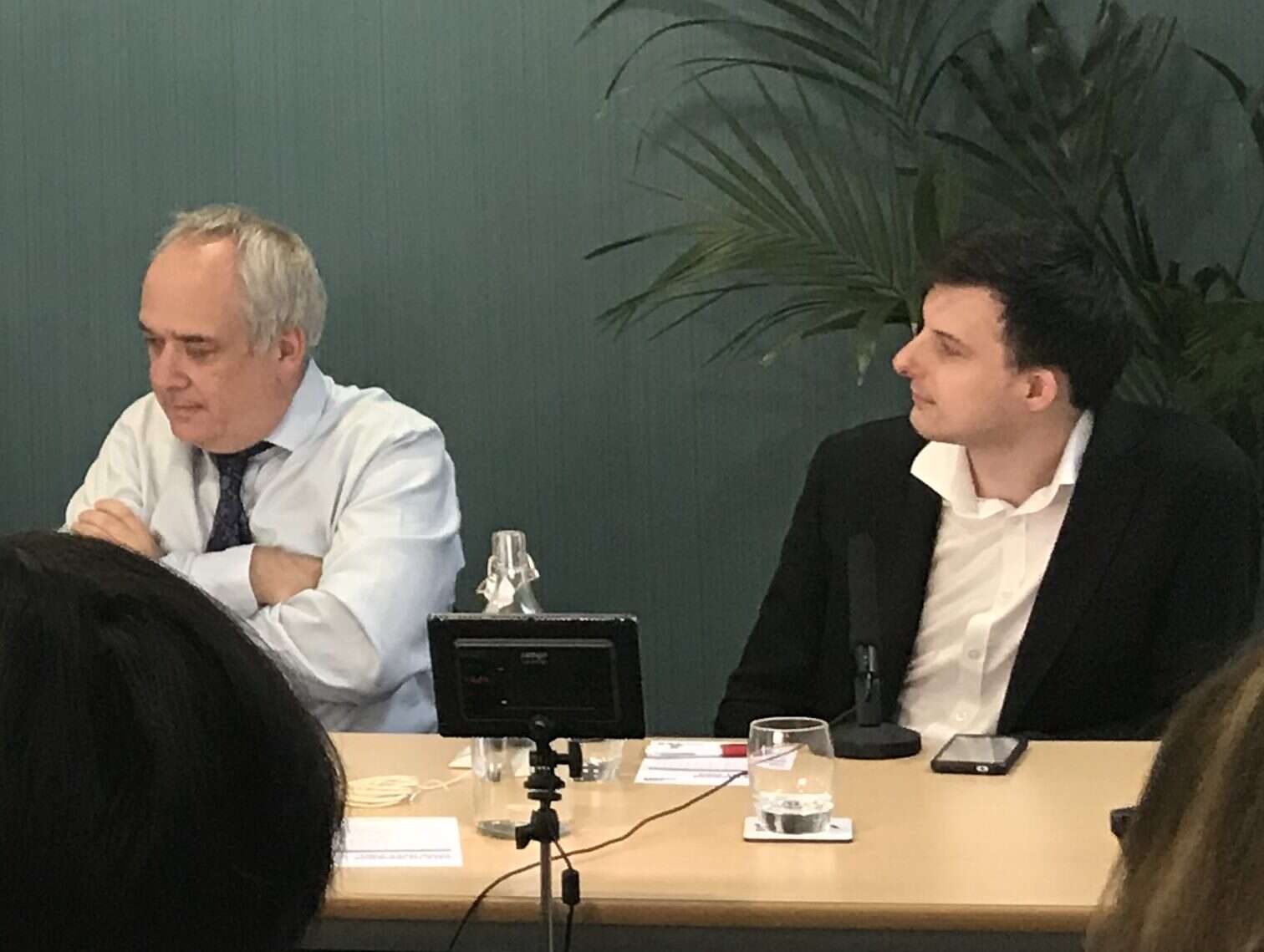
The following is a response from Will Moy (pictured, right), chief executive of fact-checking charity Full Fact, to a question about how to fight misinformation, made during a conference on Brexit and the Media held in London on 10 October 2019.
If the game is to reach all the people reached by the false information and persuade them differently, that game is not capable of being won.
If you think fact-checking can work that way please give up. That is not how fact checking works. And that is not what Full Fact does.
Fact checking works on several levels.
Yes absolutely we reach an audience of millions of people directly. We give people information to make up their own minds, whether that’s mothers deciding whether or to vaccinate their children – a mum rang us up a couple of months ago to say I only decided to vaccinate my kids because of your work and I’m proud of that and it matters.
And fact-checking has a second consequence, which is it is a deterrent to people who would misuse information in public life. And that’s important.
It’s about changing the behaviour of people in positions of power. But in order to make fact-checking count, it can’t just be a competition for views and hits and reach. The next step is to ask people to correct the record – to keep going after the point of accuracy, the standards of accuracy, even when the news story has moved on.
It’s because of us, by the way, that the Daily Mail has a corrections column and several other newspapers followed its lead in creating one, because of the work we did.
So we start with individual fact checks, which are important, then we say the job is to stop the spread of specific unsubstantiated claims, not just by arguing them out but also by getting corrections from the original sources to get them to stop repeating the claim because repetition is where false information does the most damage, which we’ve famously seen in the Brexit process.
And then the third part of the job, and why this conversation is so important, is to look for the patterns in the thousands of fact checks we have done and work out: where does the system go wrong that lets bad information become widely known? How do rubbish stories get widely spread in the media? Is it that the journalists don’t have time? Is it that they don’t have the knowledge? Is it that there aren’t the standards processes? Can we improve the corrections processes? Why does the government put out false information? Can we improve the quality of government information? We’ve worked in both those spaces.
We’ve worked with Facebook to improve the quality of information on Facebook, and to scrutinise the content that is publicly posted on there.
It’s about going upstream, because even in the democratised information age we live in now there are still pinch points in the information flow. Places where people hold huge amounts of power over what millions of people see and how those people behave matters. That’s why this conversation matters so much.
Journalists have, I think, been browbeaten over the last few years.
It is an industry that feels in decline. It is a job with which you are asked to do more, with less, generate more stories on more channels, too tied to deadlines with less support from sub-editing and editing and all the rest of it.
It is hard to be a journalist at the best of times and these are not easy times to be a journalist.
It’s very easy to forget the power that the media holds. In this country three-quarters of people get news from television, that’s more than the internet, whatever you in your London bubble might think. Four out of ten of us get news from newspapers and from radio. These are enormously important shapers of society and journalism has that power.
But what I find extraordinary is how they have failed to recognise that they are part of an adversarial process at the moment. If you are a journalist you are the victim of constant attempts to manipulate you. That is the reality of active political campaigning.
And the political campaigners understand the rules by which the media works. They understand that you get a rebuttal quote at the end of a story and nobody will scrutinise what you say in that rebuttal quote, so you can more or less get away with talking complete nonsense in that last paragraph of a story and having the final word.
They understand how anonymous quotes are used and that you can use them as vehicles to spread political messages without meaningful accountability.
I was talking to our editor Tom Phillips about this earlier and he made the distinction that journalists sometimes merge habits and principles and fail to make that distinction.
There are lots of habits about how journalism is done which start in important principles – protecting your sources is an important principle, giving people a right of reply is an important principle.
But when malicious actors find ways to exploit those habits in the media and turn them against your audiences, it is time to update your reporting processes so that that powerful platform you have cannot be misused for other people’s political purposes.
The Brexit and the Media conference was organised by Reuters Institute for the Study of Journalism and think tank The UK in a Changing Europe. Watch the full video of the panel session on lessons learned from reporting Brexit.
The above response has been edited slightly to aid the reader.
Email pged@pressgazette.co.uk to point out mistakes, provide story tips or send in a letter for publication on our "Letters Page" blog
